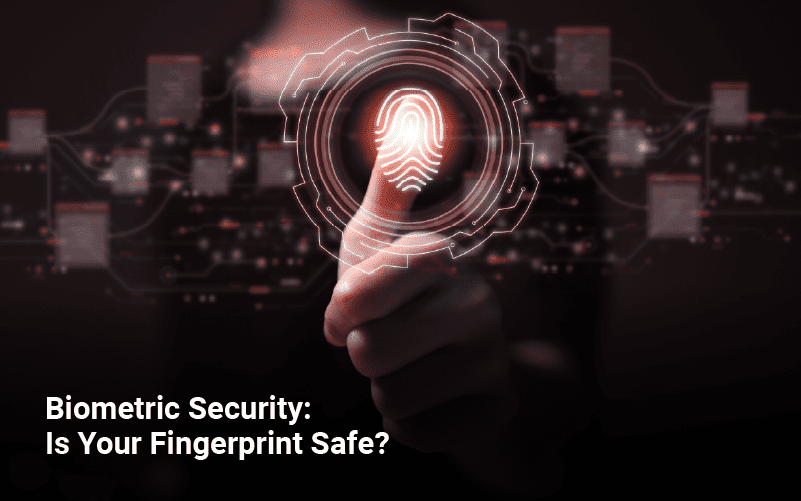Cyber Security Certifications or a Master’s Degree in Cyber Security? Both Go Hand-in-Hand
Imagine this scenario – you’re applying for a cyber security management position at a well-known company. You’ve been waiting for this opportunity for quite some time, and the competition is fierce. Prior work experience is one thing, but possessing the qualifications to reinforce your experience can change the dynamic. Fortunately, while other candidates have either cyber security degrees or certifications, you have a strategic combination of both, setting your profile apart and giving you a unique advantage in getting the job. Your master’s degree in cyber security serves as the solid foundation upon which your cyber security certifications add immense value, showcasing your ability to put theory into practice and validating your broad scope of knowledge, specialized skill set, and leadership qualities.
Career Benefits of Pairing a Master’s Degree in Cyber Security with Top Cyber Security Certifications
- Specific Expertise: Certifications focus on targeted areas of cyber security, such as ethical hacking (C|EH), network defense (C|ND), digital forensics (C|HFI), and many more. By specializing in a specific domain, employers will know you have finely-tuned skills in addition to the overarching cyber security knowledge gained from a master’s degree.
- Salary Hikes: Professionals who augment their master’s degrees with top cyber security certifications are known to attract higher salary offers.
- Leadership Positions: Besides a master’s degree, certifications like C|CISO are prerequisites for C-level leadership roles. They demonstrate your business acumen and organizational skills in solving complex cyber security issues by leading teams of experts.
- Practical Knowledge: EC-Council University’s certification courses feature virtual labs for practicing with the latest cyber security tools and techniques in real-world simulations, ensuring you can seamlessly apply what you learn in practical scenarios.
- Distinguishing Factor: In a competitive job market, having a master’s degree in cyber security and relevant certifications can distinguish you from other candidates. Employers are often drawn to those with additional qualifications.
- Job Suitability: Some cyber security roles, like Ethical Hacker or Penetration Tester, require specific certifications (C|EH, C|PENT) along with a cyber security master’s degree. Holding these certifications will enhance your eligibility for such job opportunities.
- Better Job Performance: The combination of a cyber security master’s degree and certifications empowers you with a dynamic skill set, increasing your ability to tackle complex and evolving cyber security challenges effectively.
- Professional Validation: Cyber security certifications often require passing challenging exams and meeting experience requirements, further validating your skills and knowledge.
- Updated Know-How: Certifications require continuous learning and timely renewal, ensuring you stay current with the latest cyber security tools, threats, and best practices.
- Tailored Skills: Certifications allow you to specialize in areas that align with your future cyber security career goals. For instance, if you decide to pivot towards cloud security at some point, the C|CSE certification will equip you with the requisite knowledge and skills.
- Career Flexibility: Diverse qualifications enable you to explore various career paths within cyber security, from technical roles to senior management positions.
- Global Recognition: Cyber security certifications are globally recognized, particularly from eminent institutions like EC-Council University. They show employers you have met rigorous training standards and possess advanced technical expertise and competence.
- Mentorship and Networking: By developing a comprehensive expertise from a master’s degree in cyber security and complementary certifications, you can discover exclusive mentorship and networking opportunities that further enhance your career growth.
Top Certifications You Can Earn with ECCU’s Master of Science in Cyber Security Degree
EC-Council University offers you the best of both worlds – you can earn your master’s degree in cyber security while amassing up to four industry-recognized cyber security certifications as part of the learning experience. Our Master of Science in Cyber Security program presents you with five specialization options, each accompanied by unique certifications tailored to the curriculum’s subject matter. Depending on your choice of master’s specialization, here are some of the most notable and world-renowned certifications you can acquire:
Certified Ethical Hacker (C|EH) – Outwit malicious actors by leveraging AI in ethical hacking and vulnerability assessment to develop effective countermeasures that protect organizations from sophisticated cyber-attacks.
Certified Network Defender (C|ND) – Develop your skills in designing security policies, troubleshooting network disruptions, and utilizing industry best practices to safeguard critical data and IT network systems.
Certified Penetration Testing Professional (C|PENT) – Pre-empt cyber-attacks with penetration testing practices suitable for various widely implemented digital environments, networks, and devices.
Certified Chief Information Security Officer (C|CISO) – Assume command of safeguarding your organization’s data and technology ecosystem, directing policy, best practices, flow of operations, resource allocation, and every other cybersecurity-related aspect
Certified Hacking Forensic Investigator (C|HFI) – Bring cyber-criminals to justice by tracing, acquiring, preserving, analyzing, documenting, and securely handling digital evidence to maintain integrity throughout the investigative process.
Certified Cloud Security Engineer (C|CSE) – Implement cloud-based penetration testing and proactive incident response strategies, while taking on cloud forensic challenges and enforcing relevant laws, standards, and policies.
EC-Council Disaster Recovery Professional (E|DRP) – Lead the way in preparing, planning, and implementing disaster recovery policies and procedures by using advanced risk assessment methodologies and disaster recovery solutions.
EC-Council Certified Incident Handler (E|CIH) – Leverage incident handling and response preparation, incident validation and prioritization, incident escalation and notification, forensic evidence gathering and analysis, incident containment, systems recovery, and incident eradication.
Take the Next Step with EC-Council University
Ready to accelerate your cyber security career progress? Join EC-Council University’s Master of Science in Cyber Security program for a career-defining learning experience that not only provides a prestigious master’s degree but also endows you with multiple cyber security certifications that elevate your professional profile like never before!
Connect with our Enrollment Advisors to determine the right specialization option based on your career aspirations and existing skill level.








